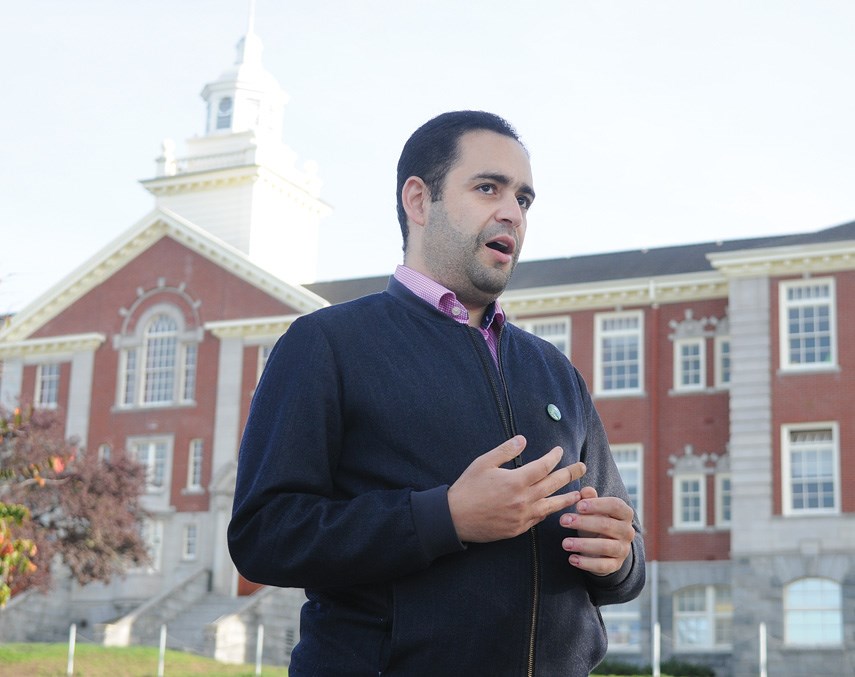A group of Farsi-speaking people in the Lower Mainland are pushing for Farsi – or Persian – to be included as one of the second languages taught in schools.
Amir Bajehkian of the newly formed group Farsi Dar B.C. says given the number of people who speak Farsi – or Persian – in the Lower Mainland, the time is right for a new language course.
“We want to provide the option for students to take Farsi in schools, as part of the curriculum, during school time and for credit,” he said.
Many Persian-speaking families would welcome that option, as a way for their kids to retain the written and spoken language in a predominantly English-speaking environment, he said. It’s also an opportunity for non-Farsi speakers to learn the language.
Farsi is spoken by most Iranians, but also by people from Afghanistan, Tajikistan, parts of India and Pakistan and by Punjabi elders, said Bajehkian.
North Vancouver and West Vancouver both have sizable populations of Farsi-speaking people, as does Coquitlam.
But there are other areas like downtown Vancouver, Surrey and Burnaby that also have populations that speak the language, said Bajehkian.
Bajehkian said his group has had preliminary discussions with both the provincial Ministry of Education and local school board chairs and received positive feedback. He said he’s now rounding up statistics and looking into how many families might be interested in having Farsi taught in schools.
If there is enough interest, the group hopes to approach North and West Vancouver school districts about the possibility of developing a local course before pursuing the issue provincially.
Currently there are nine provincially approved second language programs: in American Sign Language, French, German, Italian, Japanese, Korean, Mandarin, Punjabi and Spanish for students in grades 5 through 12.
According to statistics released from the last census, of the immigrant mother tongues spoken in West Vancouver, Mandarin ranks highest at 12.2 per cent of the population. Farsi is second at 9.3 per cent and Cantonese ranks third at 2.2 per cent.
In the District of North Vancouver, Farsi, Mandarin and Cantonese top the list at 6.3, 2.4 and 1.9 per cent, respectively.
In the City of North Vancouver, the top four non-English mother tongues are Farsi (8.4 per cent) Tagalog (four per cent), and Korean and Spanish (both 2.1 per cent).
Farsi remains the most common non-English language spoken across the North Shore.
Bajehkian, who is also a member of the Multicultural Advisory Council of B.C., said Farsi Dar B.C. hopes to approach the North Vancouver, West Vancouver and Coquitlam school districts about developing a local course in Farsi.
A spokesman for the Ministry of Education said in addition to provincial language courses, the ministry encourages opportunities for students to learn languages that are significant within their communities.
Courses in Arabic, Croatian, Russian and various Indigenous languages have previously been developed in local communities and approved as credit courses.
The spokesman said Education Minister Rob Fleming recently spoke with Bajehkian about the process to get a language approved.



